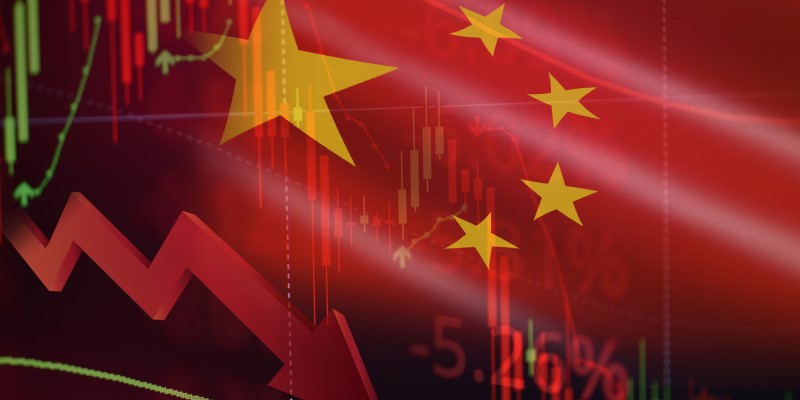The China Investment Corporation (CIC) is a significant player in the global financial landscape, representing one of the worlds largest sovereign wealth funds. Established in 2007, the CIC was created to diversify Chinas foreign exchange reserves and to enhance its global investment portfolio.
With assets under management that have grown to over $1 trillion, the CIC plays a crucial role not just in China's economic strategy but also in international markets. However, the CIC has not been free from scrutiny and criticism. This article explores the CIC's meaning and purpose, along with the various criticisms it faces in its operations.
The Meaning of the China Investment Corporation
The China Investment Corporation is primarily a sovereign wealth fund, which means it is owned and operated by the state. Its primary goal is to manage part of Chinas vast foreign exchange reserves, which are among the largest in the world. The establishment of the CIC was part of a broader effort by the Chinese government to shift from a purely export-driven economy to a more balanced one, which includes investments in foreign assets.
The fund invests in a range of asset classes, including public equities, fixed income, real estate, and alternative investments such as private equity and hedge funds. The CIC operates through various subsidiaries and partnerships, allowing it to tap into opportunities across different sectors and regions. Its investments are not only focused on financial returns but also on securing resources and gaining strategic advantages in key industries, such as technology, energy, and infrastructure.
One of the core functions of the CIC is to generate sustainable returns for the Chinese government while also supporting domestic economic growth. By investing abroad, the CIC helps diversify Chinas economic exposure and reduce reliance on any single market or asset class. This strategic approach is vital for a country of Chinas size and economic complexity, especially in the face of fluctuating global markets.
Global Reach and Investment Strategies
The CIC has a far-reaching global presence, with investments in North America, Europe, Asia, and emerging markets. This international strategy aims to maximize financial returns and foster relationships with foreign governments and businesses. The CIC often collaborates with local firms to gain insights into market dynamics and mitigate risks associated with foreign investments.
In recent years, the fund has shown a particular interest in technology and innovation. Investments in tech giants and start-ups around the world reflect Chinas ambition to become a global leader in these fields. The CIC aims to secure access to cutting-edge technologies that can enhance Chinas domestic capabilities. This focus on technology is not merely for profit but is deeply intertwined with national interests, reflecting a strategic move to maintain Chinas competitive edge in the global arena.

Criticism and Controversies Surrounding the CIC
Despite its impressive growth and strategic investments, the China Investment Corporation faces significant criticism and scrutiny from various quarters. Critics often point to the lack of transparency in its operations. As a state-owned entity, the CIC does not disclose detailed information about its investment strategies, performance metrics, or decision-making processes. This opacity raises concerns among investors and analysts about the fund's true performance and motives.
Moreover, the CIC has been accused of engaging in predatory investment practices. There are fears that its deep pockets and backing from the Chinese government enable it to outbid competitors for strategic assets, particularly in sectors deemed important for national security. This has led to heightened scrutiny in countries like the United States, where lawmakers and regulators have expressed concerns over potential security risks associated with foreign ownership of critical infrastructure and technologies.
Another point of contention is the CICs role in promoting China's geopolitical agenda. Some critics argue that its investments are often aligned with the broader goals of the Chinese government, which can create friction in international relations. The fund's involvement in countries with controversial human rights records or in regions experiencing geopolitical tensions raises ethical questions about the nature of its investments. Critics contend that this could undermine the principles of free-market competition and fair play.

The Impact of Global Economic Dynamics
Global economic dynamics also shape the China Investment Corporation's influence. As geopolitical tensions rise, particularly between China and Western nations, the CIC's investment strategies may come under increased scrutiny. The ongoing trade disputes, concerns over intellectual property theft, and military tensions in the South China Sea all impact how the CIC is perceived abroad.
In response to these challenges, the CIC has sought to adapt its investment approach. It has diversified its portfolio further, exploring opportunities in regions that may be less affected by these geopolitical tensions. By investing in emerging markets or in sectors that align with global sustainability goals, the CIC aims to mitigate risks associated with geopolitical uncertainties.
Additionally, the CIC has been increasingly interested in responsible investment practices. In recent years, there has been a growing emphasis on environmental, social, and governance (ESG) criteria in investment decision-making. This shift reflects a recognition that sustainable investing can yield long-term benefits while also aligning with global trends. The CIC's efforts in this area signal a willingness to engage with international standards and practices, which could enhance its reputation on the global stage.
Conclusion
The China Investment Corporation stands as a powerful player in the global investment landscape. Its establishment marked a strategic shift in Chinas approach to managing its vast foreign reserves, with the aim of fostering economic growth and diversification. However, this significant role has also brought criticism, particularly regarding transparency and the geopolitical implications of its investments.
As the CIC navigates the complexities of global finance, its ability to adapt to changing dynamics while addressing criticisms will be crucial for its future success. The balance between pursuing profitable investments and maintaining ethical standards will define how the CIC is perceived in the international arena. As it moves forward, the CIC's actions will continue to resonate, influencing not just China's economic landscape but also the broader global financial system.




